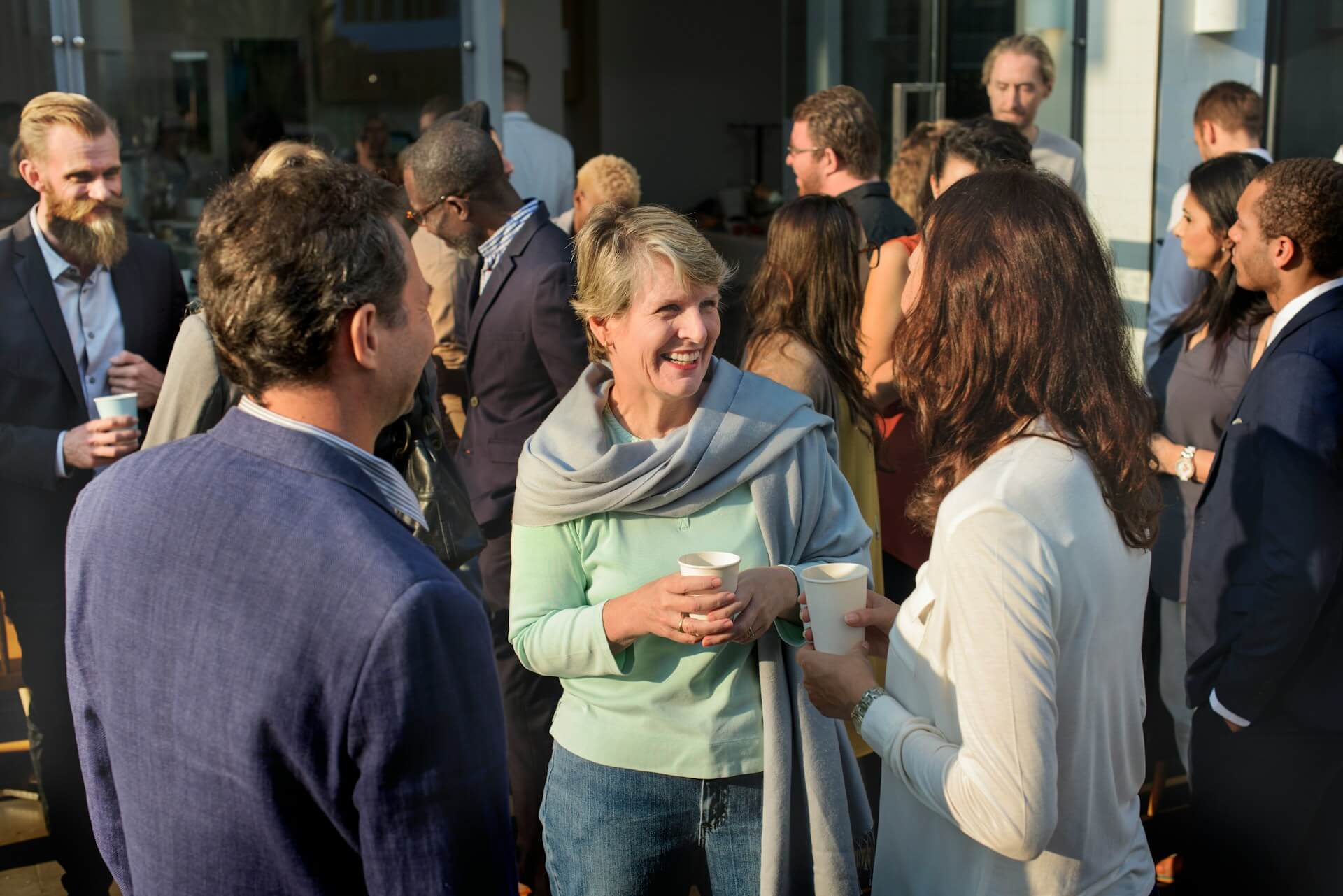Industry events are full of chances to learn something new, meet new people, and open professional doors you might not know exist yet. But just showing up with a stack of business cards isn’t going to cut it. Building relationships that last takes more than handing someone your name. It means being intentional about how you show up, how you speak, and how you follow through.
Real networking isn’t about collecting contacts. It’s about developing trust with people who might help you grow and who you can help too. That’s the core of social capital and networking. When you make the effort to stand out for the right reasons at an industry event, you put yourself in a better position to connect with others in a way that’s both professional and personal.
Preparing For The Event
Good prep makes everything smoother. If you’re counting on winging it, you’re likely to miss some solid opportunities. Before walking into any room, you want to know who’s going to be there and how you plan to contribute to conversations.
Start by researching the event in detail. Look through attendee lists, speaker panels, and sponsors to identify who you want to meet:
– Check the event website or app for speaker bios and session descriptions
– Join any pre-event forums or social groups to see who’s talking and what topics are trending
– Make a short list of people or companies that stand out and why they interest you
Once you’ve done your homework, get clear on your own goals. Are you looking for a mentor? Trying to get leads for your service? Seeking collaborators for a new idea? Having a goal helps you stay focused and intentional without making every interaction feel like a pitch.
The last step before the event is crafting a short, effective elevator pitch. This should be a sentence or two that introduces who you are, what you do, and what makes your approach or work different. Keep it flexible so it doesn’t sound rehearsed, but know it well enough that you can share it naturally whenever someone asks, “So, what do you do?”
All of this prep doesn’t take days of effort. A few focused hours can be the difference between a good event and a great one. Think of it like heading into a job interview. A little effort upfront makes better conversations when it matters.
Navigating the Event
Walking into a room full of strangers can be nerve-wracking, but it’s also a massive opportunity. The best way to start is by approaching new contacts confidently. Remember, others may feel just as nervous as you do, and a friendly introduction can break the tension for both parties.
Strike up meaningful conversations by focusing on genuine interest in others’ work and experiences. Ask open-ended questions that invite detailed responses rather than simple yes or no answers. What drew you to this industry? Or what’s been the most exciting project you’ve worked on recently? These are good starters. This not only helps the person open up but also makes the chat more engaging.
Body language plays a big part in how you’re perceived. Keeping an open posture, making eye contact, and nodding as others speak shows you’re engaged. It’s a silent yet powerful way to signal you’re interested and approachable. Stand with your arms relaxed at your sides, rather than crossed, and face your conversation partner fully. These small gestures build a sense of openness that words might not fully convey.
Building Social Capital and Networking
Once the event wraps up, the real work begins. It’s the follow-up that often turns a good conversation into a lasting connection. Send personalized messages to those you’ve met, referencing a specific detail from your discussion to make it memorable. This could be a shared interest, a topic you explored together, or even a joke that lightened the mood.
Maintaining and nurturing these new connections requires effort but pays off as your professional circle expands. Set reminders to reach out periodically, whether through emails, LinkedIn, or even grabbing coffee if feasible. Sharing articles, resources, or opportunities that align with their interests is a thoughtful way to add value and deepen the relationship.
Leverage these connections for mutual benefit. Whether it’s collaborating on projects, exchanging skills, or referrals, strong networks provide diverse opportunities. Think of it like building bridges. Every effort you make to maintain a relationship lays another plank, creating pathways that can lead to fruitful career partnerships.
Overcoming Common Challenges
Networking doesn’t come naturally to everyone, and that’s okay. Managing social anxiety or nervousness is a hurdle many face. To ease into comfort, start with small conversations before approaching larger groups. Spotting others who seem more reserved can be a good way to ease into the environment. They’re likely relieved to have someone initiate conversation.
Difficult conversations happen, but they don’t have to throw you off track. If you encounter someone unresponsive or overbearing, know it’s fine to politely excuse yourself and move on. Practice phrases like, “It’s been great talking with you. I’m going to mingle a bit more, but let’s catch up later.” This offers an exit without appearing rude.
Balance is key. While networking is important, don’t forget to enjoy other activities the event offers, like workshops or keynotes. They provide additional learning and can become great conversation starters for future networking opportunities. Taking these steps not only helps overcome challenges but also enriches the overall event experience.
Forge Connections That Last
The ability to create lasting professional relationships can transform careers. Strong connections pave the way for collaboration, support, and shared success. As you nurture these relationships, you cultivate a network that reflects both your personal growth and professional reach.
Let these strategies lead your approach to networking with authenticity and intentionality. The benefits of genuine connections go far beyond one event, setting the stage for ongoing opportunities and collaborations that enrich both your career and personal life.
Building meaningful connections is not only about immediate gains but creating long-term growth through collaboration and trust. If you’re inspired to improve your networking skills and deepen your understanding of social capital and networking, explore our insights and guidance on our podcast page. The Art of Charm is here to guide you in forming genuine, impactful connections that last.



